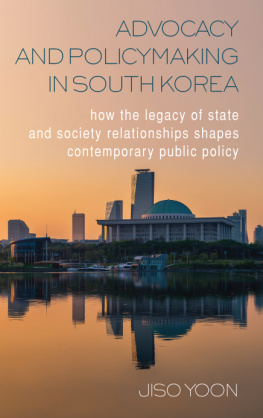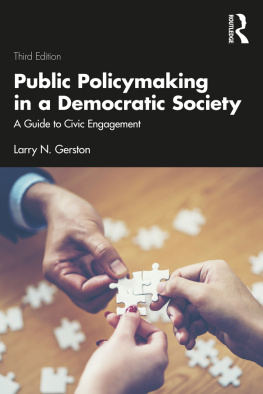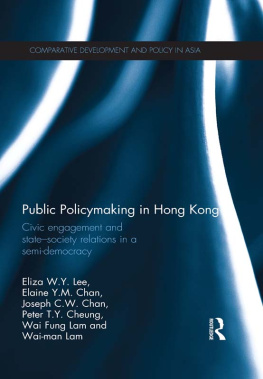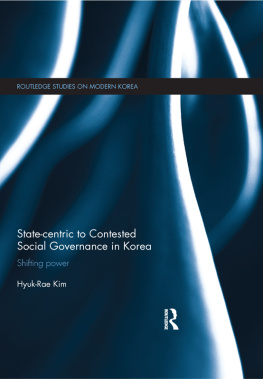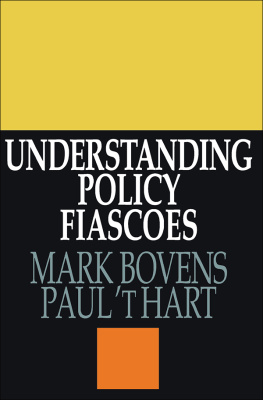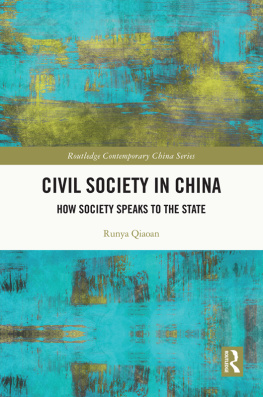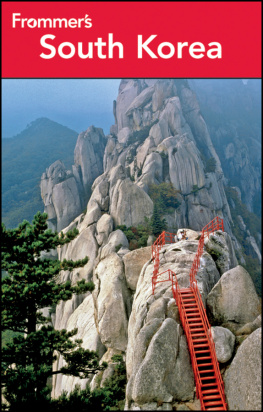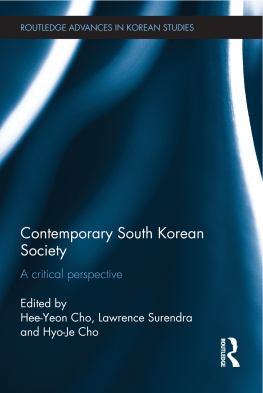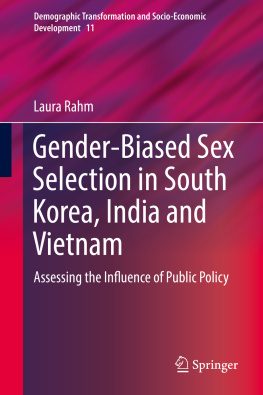Cover image istockphoto / Vincent St. Thomas
Published by State University of New York Press, Albany
2016 State University of New York
All rights reserved
Printed in the United States of America
No part of this book may be used or reproduced in any manner whatsoever without written permission. No part of this book may be stored in a retrieval system or transmitted in any form or by any means including electronic, electrostatic, magnetic tape, mechanical, photocopying, recording, or otherwise without the prior permission in writing of the publisher.
For information, contact State University of New York Press, Albany, NY
www.sunypress.edu
Production, Diane Ganeles
Marketing, Kate R. Seburyamo
Library of Congress Cataloging-in-Publication Data
Names: Yoon, Jiso, 1982 author.
Title: Advocacy and policymaking in South Korea : how the legacy of state and society relationships shapes contemporary public policy / Jiso Yoon.
Description: Albany : State University of New York Press, [2016] | Includes bibliographical references and index.
Identifiers: LCCN 2016007287 (print) | LCCN 2016014479 (ebook) | ISBN 9781438462516 (hardcover : alk. paper) | ISBN 9781438462530 (e-book)
Subjects: LCSH: Political planningKorea (South) | Pressure groupsKorea (South) | Political participationKorea (South) | Civil societyKorea (South) | Korea (South)Politics and government.
Classification: LCC JQ1725.A55 P649754 2016 (print) | LCC JQ1725.A55 (ebook) | DDC 320.6095195dc23
LC record available at http://lccn.loc.gov/2016007287
10 9 8 7 6 5 4 3 2 1
Acknowledgments
The completion of this book would not have been possible without the persistent encouragement and help of my friends, family, and mentors, as well as the policy advocates in Korea who devoted their precious work time. I am afraid that I will not be able to list the names of all the individuals who have shaped this project in important ways here, especially policymakers inside and outside the government whose names I promised not to make public. Unfortunately, I cannot think of an appropriate way to pay back the debts I have incurred in the process of writing this book either. Nevertheless, I hope the readers will be able to find the knowledge, passion, and spirit of these individuals here.
This book began as a dissertation project when I was a PhD student in the Department of Political Science at Penn State University. I am indebted to two of my greatest mentors: Frank Baumgartner and Lee Ann Banaszak. Lee Ann became my faculty mentor from day one in graduate school and continued performing that role until my graduation. She became my role model as a hardworking researcher and an inspiring teacher. She motivated me to think critically and become passionate about the world. On the other hand, Franks advice and guidance was fundamental to this book project from the beginning until completion. I really do not think I could have found any better mentor to help me navigate through a research project. With his expertise, insight, and sharpness, Frank has shaped the publication of this book in fundamental ways.
I would also like to thank the Department of Political Science and the College of the Liberal Arts at Penn State University for funding my fieldwork. Thanks also to Marie Hojnacki, Vineeta Yadav, and John D. McCarthy for contributing to my dissertation committee.
My fieldwork was made possible with the institutional support from the Research Institute for Social Science at Ewha Womans University in Korea. I would like to express my gratitude to two faculty members thereEunbong Choi in the Department of Political Science and Sung-Nam Cho, who was the director of the Research Institute for Social Science at Ewha. I dont believe I could have found any better research environment to complete my fieldwork.
The University of Kansas allowed me to pursue my project as a book manuscript. I would like to express special thanks to the chair of the Political Science Department, Donald Haider-Markel, for giving me a lot of encouragement and support. I would like to also thank several senior colleagues at KU, who have helped me smoothly transition from a graduate student to an assistant professor: Fiona Yap, Dorothy Daley, Hannah Britton, Robert Rohrschneider, and Gary Reich. Thanks also to Michael Lynch, Christina Bejarano, and Gail Buttorff for their friendship, support, and guidance.
St. Johns in Lawrence deserves my special acknowledgment. Mass every morning at the church was a major source of energy while I was revising the manuscript. My friends in LawrenceBenedicta Lee, Michelle Oh, Mary Ann Roesner, Veronica Hamer, and Susan Goodwinhelped me with their prayers, friendship, and good food! I thank my family in Seoul and UlsanI. S. Yoon, J. J. Shin, Cherry Yoon, Nara Yoon, and Changhee Joofor their unconditional support of my endeavors.
Of course, the publication of this book would not have been possible without the assistance of three anonymous reviewers and Michael Rinella, senior acquisitions editor at SUNY Press. I would like to thank them all for giving me valuable feedback to improve my manuscript. In addition, I would also like to say special thanks to the participants of the 2012 Rising Stars Workshop held at the University of Southern California for their helpful comments to an early draft of my book chapter.
I acknowledge kind permission granted by Taylor & Francis to reprint sections of an article previously published in the Asian Journal of Political Science (Yoon 2013) in chapter 5. I would also like to thank the authors of Lobbying and Policy Change (Baumgartner et al. 2009) for graciously making their data set publicly available. The data set on advocacy and policymaking in the United States was originally collected by Frank R. Baumgartner, Jeffery Berry, Marie Hojnacki, David Kimball, and Beth Leech with the support of National Science Foundation grant numbers SBR 0111224 and 9905195. Neither NSF nor the original collectors of the data bear any responsibility for the analysis reported here.
Finally, I would like to give my special thanks to over a hundred government bureaucrats, legislative staff of National Assembly members, and interest group representatives in Korea who contributed valuable data to this book. Following official interviews, I shared my plan of publishing a book on the Korean policy process in my informal conversations with my interviewees. Some of the interviewees responded very positively to my remarks, saying that they really wanted to read the book when it was done. Quite honestly, though, I do not think they decided to share their valuable time and ideas just because they were personally interested in becoming part of a published book. Instead, I believe most of my respondents met with me simply because they wanted to help an aspiring researcher/scholar complete a research project, and because they themselves are very much dedicated to good public policy grounded on transparent knowledge. I sincerely hope that this book is one of the many steps in achieving that goal.

